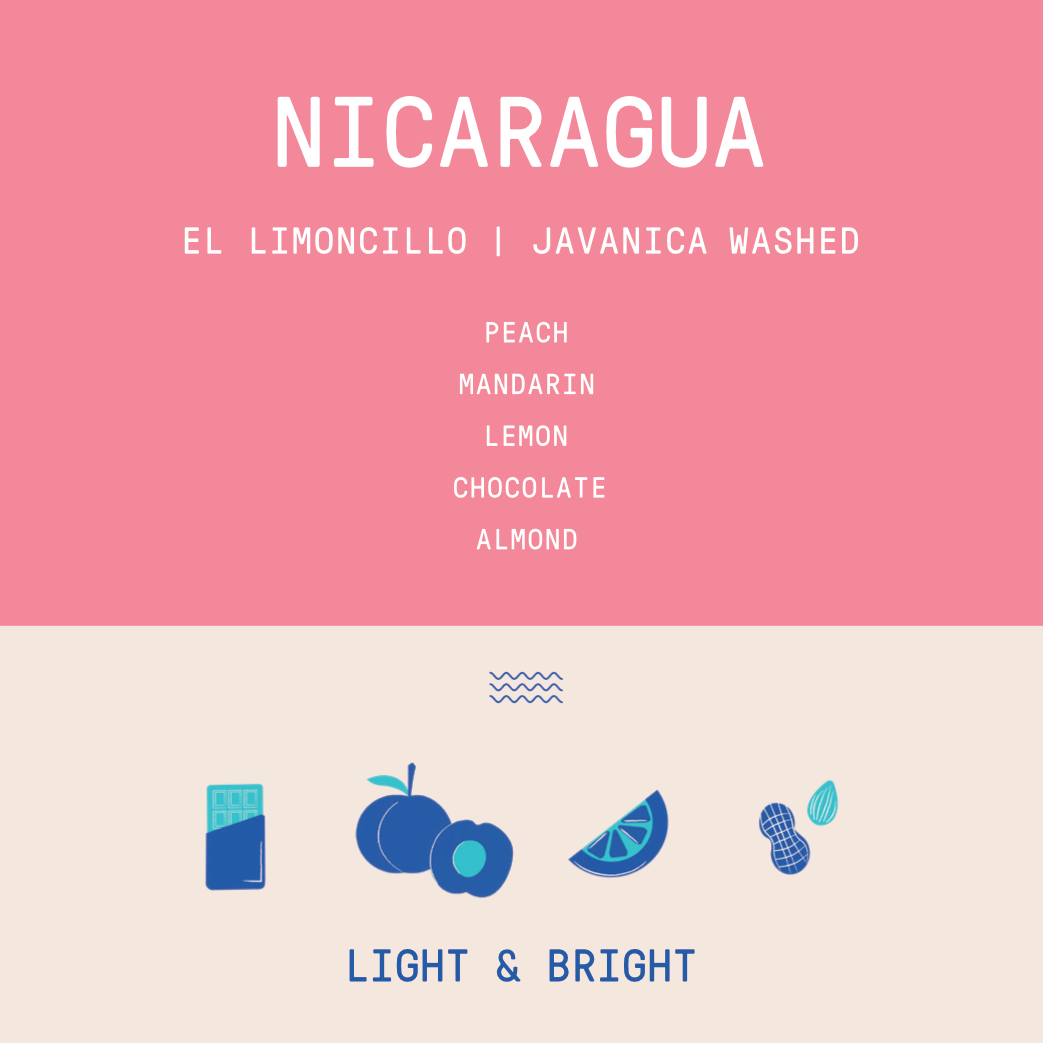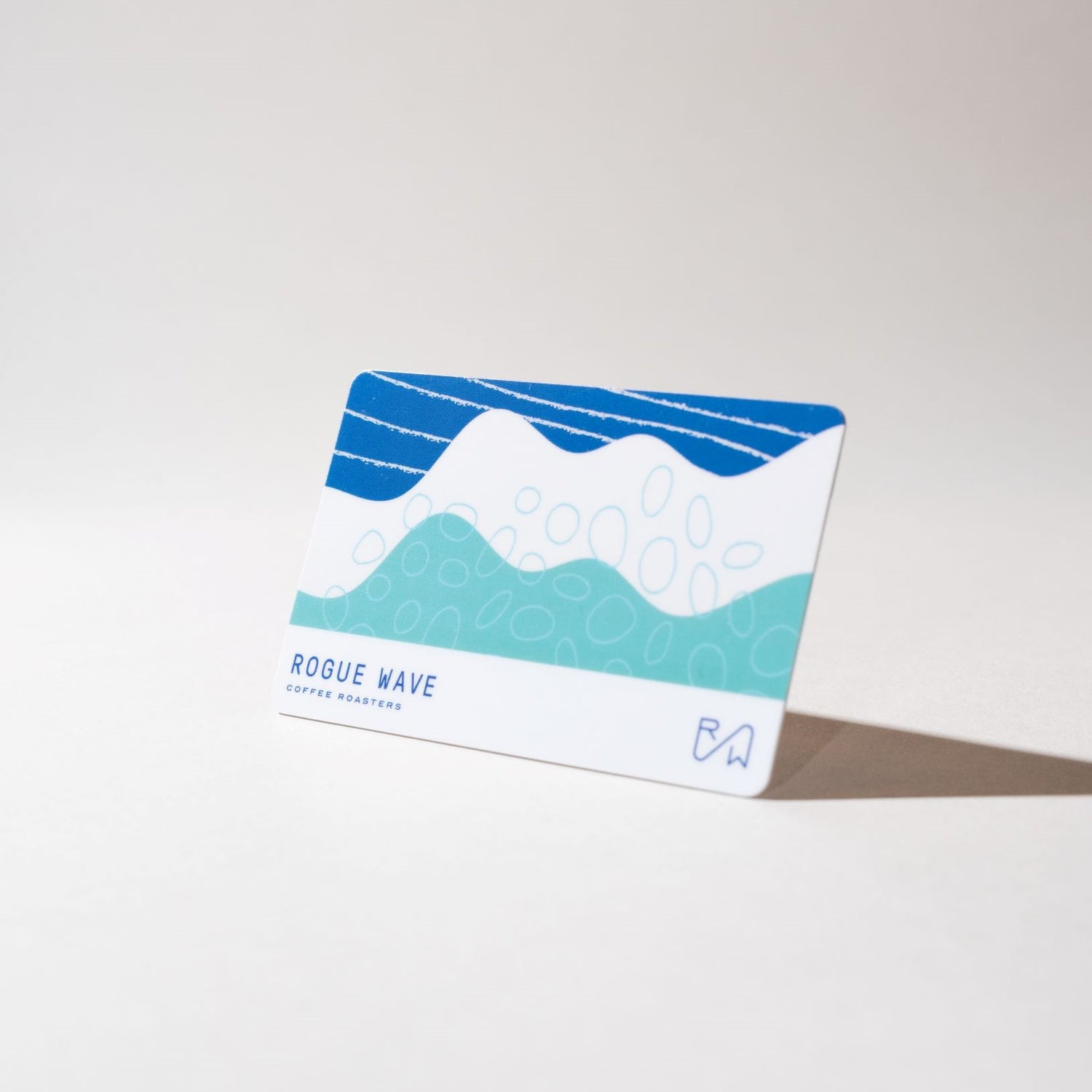Last roast - Nov 28
Named after the Limoncillo, a small type of lemon growing on the farm when it was purchased in 1930, Limoncillo is the second oldest coffee farm in the Fincas Mierisch group. It was acquired after one of the grandfathers transitioned from military academy to civilian life. Initially, Typica was the only varietal grown, but due to climate change, market instability, and vulnerability to coffee leaf rust, the farm diversified its varietals and prioritized quality over quantity.
The Matagalpa region was a primary settlement area for German immigrants in Nicaragua, many of whom, including the Mierisch family, became involved in coffee production. The family's great-great grandfather, Bruno Mierisch, arrived in the late 1800s to help build the national railroad. When the government couldn't pay him, he was given land instead. His first farm, Las Lajas in Matagalpa, began coffee production around 1908 due to government incentives promoting coffee cultivation.
Limoncillo offers child daycare services and has its own primary school and clinic on-site. Child labor is strictly prohibited, and children are provided free meals during the harvest. Discrimination of any kind is not permitted on the farm. Limoncillo generates renewable energy through hydro-powered turbines.
Annual training in better agricultural practices has helped improve yield and cup quality while reducing production costs.
Fincas Mierisch’s Java variety comes with a storied history. In 2001, members of the Mierisch family came across a roadside fruit vendor on their way home from one of their farms. Upon stopping to purchase fruit, they noticed a bag labeled “java,” and enquired about its contents. The vendor claimed that the bag contained coffee seeds of the famous Java variety, and despite being skeptical that these were truly authentic they took a chance and purcahsed the seeds.
After planting the seeds and caring for the plants, the family was pleased to discover that these coffee trees were indeed the longberry Java variety, and they went on to establish a plot of the trees at their Finca El Limoncello, earning 2nd place in Nicaragua’s 2007/2008 Cup of Excellence, as well as 4th place in 2017 with coffee grown at Finca Las Delicias. Originally believed to be a mutation of Typica, genetic testing has since found the variety to be an Ethiopian heirloom taken from the country to the island of Java where it got its name. Today, Fincas Mierisch calls the coffee “Javanica” to represent the variety’s new Nicaraguan home.
This lot of Javanica underwent Washed processing. It begins at the farm by selecting only optimally ripe cherries. These cherries are floated and carefully depulped using minimal water. After depulping, the beans are dry fermented in tiled tanks for 36 hours, a method chosen for water conservation and faster mucilage removal. Post-fermentation, the parchment is washed with clean water and transported to the mill. At El Limoncillo farm, water treatment tanks clean the water used in this process.
At Don Esteban dry mill, they avoid drying on concrete patios. Instead, a thick layer of parchment is placed on the ground, covered with a black polymeric net that allows air to circulate, ensuring an even dryness. The coffee dries on these tarps for two days under full sunlight to prevent over-fermentation or mold growth. It is then transferred to raised beds with 75% shade for an additional 13 days until it reaches a humidity level of 12% or below. The total drying time for this lot is 15 days. Once dried, the beans are moved to a warehouse to stabilize as dried parchment, allowing humidity to homogenize and extending the beans' shelf life by keeping the embryo alive as long as possible.









